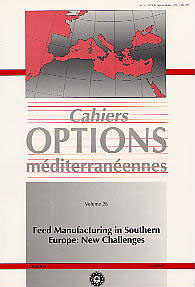| Article précédent | p. 83-86 | Article suivant |
The importance of analytical control
The aim of Quality Control is to give information in order to make decisions based on experiments. The rate of improvement and the complexity of new technologies induce a continuous renewal of the performance of Quality Control. In the future it may be possible for the control to be applied directly in the production plant instead of the classic laboratory. Quality Assurance re-enforces Quality Control and there are several models for implementing it (GLP's, ISO 25, EN 45000 and ISO 9000). As all of them are very similar, laboratories have to integrate them. The certification or accreditation are formal recognitions of laboratories and of their capacity to carry out a specific test. The key to future success in a business such as feed manufacturing, is the implementation of Quality Assurance systems which re-enforce Quality and Process Control Programmes.
- [ Afficher ]
- [ Télécharger ]
- [ Exporter la citation ]
Vous pouvez télécharger la citation au format :
- [ Imprimer ]
-
Mots-clés
ALIMENT POUR ANIMAUX, CONTROLE DE QUALITE, TRAITEMENT D'ALIMENTS POUR ANIMAUXCiter cet article
Obiols J. The importance of analytical control. In : Morand-Fehr P. (ed.). Feed manufacturing in Southern Europe: New challenges. Zaragoza : CIHEAM, 1997. p. 83-86. (Cahiers Options Méditerranéennes; n. 26). South European Feed Manufacturers Conference, 1996/05/09-11, Reus (Spain). http://om.ciheam.org/om/pdf/c26/97605973.pdf



